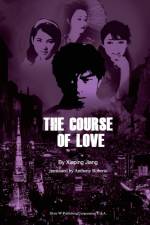von Xiaping Jiang
32,00 €
On August 15, 1945, the Emperor of Japan announces his country's unconditional surrender to the Allied powers. Tens of thousands of Japanese settlers in a Japanese-controlled region called "Manchukuo" are abandoned by their government, which even demands that they demonstrate their loyalty to their emperor by taking their own lives.Thirteen-year-old Okamura Hanako, a Japanese war orphan, is adopted by a compassionate Chinese couple.In 1972, relations between China and Japan are normalized, and many Japanese orphans return to Japan, but Hanako declines her father and brother's call to come home.Duanmu Zhengliang is born in China to Hanako and her husband Ikeda Yao, another Japanese orphan. He is shocked when as an adult he learns of his Japanese ancestry.Zhengliang meets Tong Xin, an intelligent, principled, and beautiful journalist, and develops feelings for her. He agrees to do an interview with the newspaper she works for, and they decide to write an article about the Japanese orphans of Manchuria. However, while in Japan for an academic exchange program, a lovely doctoral student named Arikawa Kikumiko asks him to remain there with her.Hanako is torn between her two homelands, Japan and China, and between her ties to her birth parents and affection for the Chinese parents who adopted her.Zhengliang, a descendant of Japanese war orphans, struggles with his identity, "neither Chinese nor Japanese."Why have two generations of Chinese journalists spared no effort in documenting and tracking the history of the Japanese war orphans?Many Japanese are descendants of the Japanese settlers of Manchuria. Why do they gather every year on the outskirts of Tokyo in front of a monument that faces the land where their ancestors lived, singing songs, proclaiming "Manchukuo is our homeland"?


